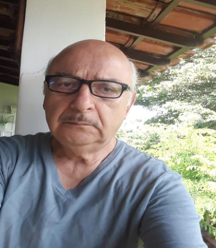Invited Speaker

Dr. Carlos E Salas
Professor, Institute of Biological Sciences, Federal University of Minas Gerais, BrazilSpeech Title: Application of plant proteolytic cysteinases: their anti-inflammatory activity is relevant to healing improvement?
Abstract: Two plant proteolytic enzymes: bromelain (A comosus) and papain (C. papaya), are well studied and there is abundant literature describing their applications. Both, papain and bromelain are composed by several isoforms. The lactiferous species Vasconcellea cundinamarcensis (ex Carica candamarcensis), native to Latin America, source of edible fruit, belongs to the Caricaceae family. Like papain and bromelain, holds a set of isomorphous proteolytic enzymes in its latex; its role has been associated to plant protection against predation. We theorize that plant latex plays a role akin to blood in mammalian circulatory system during clot formation. Some of the isoforms in V. cundinamarcensis display mitogenic activity in mammalian cells, setting the basis to study their potential as healing agents. The results confirmed the healing effect in various animal ulcer models including humans and a mechanism has been proposed to explain the healing stimulus. More recent studies show that these latex proteinases are immunomodulatory, anti-inflammatory, dissolve thrombus and display antitumor/antimetastasic activity. In clinical trials using the V. curdinamarcensis fraction to heal diabetic-foot chronic wounds, it was found 2.95-fold increase in wound rate compared to hydrogel-Coloplast control. In topical assays, a 10% formulation containing the proteolytic fraction shows a transitory sign of inflammation that recedes within 24 h. The i.v. or s.c. toxicity assays demonstrate that P1G10 at ≤ 20 mg/Kg is non-lethal after single injection, while parental administration (p.o.) >300 mg/kg cause death. In sum these data suggest the potential of this fraction to treat chronic wounds.
Biography: Dr. Carlos E Salas graduated in Biochemistry and Pharmacy - Universidad de Chile (1971) and PhD in Biological Sciences - Universidad de Chile and University of Michigan (1977). Postdoctoral at Universite Luis Pasteur, CNRS- IBMC, Strasbourg. France. Postdoctoral at University of Pennsylvania, School Dental Medicine, and Wistar Institute, Philadephia PA, USA. Full Professor of biochemistry at Universidad de Santiago, Chile. Currently Associate Professor at the Universidad Federal de Minas Gerais, ICB, Belo Horizonte, Brasil. Has experience in Biochemistry, with emphasis on Biochemistry Natural Products, acting on the following subjects: proteinases, Caricaceae, tuberculosis, leptospirosis, plant latex and mitogen and pharmacology of natural products.
The group focuses on a group of cysteine proteinases from the edible fruit of V cundinamarcensis. Its anti-inflammatory and wound healing activities have been confirmed in different wound models. Skin and gastric lesions respond favorably to treatment with the proteolytic fraction in line with the ethnopharmacologic use by aborigines from South America. The healing activity of the fraction includes lesions induced in corneal surface.In addition, the proteolytic fraction displays antitumoral-, immunoregulatory-, thrombolytic-, mitogenic-, (in normal cells) actions and antifungal effect against phytopathogens.
Clinical trials show that the fraction outperforms standard protocols to treat chronic wounds in diabetic foot patient’s type 2.
